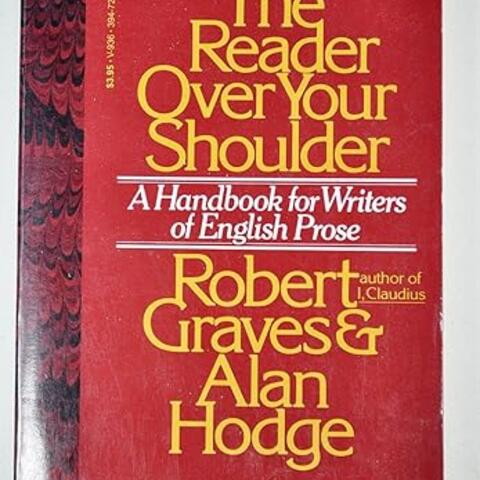Scary Stories from the Writing Desk
Notes from a Writer's Desk

The Looming Deadline
Of the scary stories told by graduate students as they huddle around a lukewarm coffee pot, none is more terrifying than the tale of the looming deadline. The stories say that it comes upon you when you least expect it. You might have caught a glimpse of it in your calendar weeks ago, but it looked far away then—hardly something to fear. But now, here it is, urgently calling for your attention, as it pops out from behind a pile of student emails. How could you have missed it for so long? Unprepared, you stare in horror as the deadline swallows you whole.
Never fear, brave graduate student! If you mark that deadline on your calendar early, and block out time to work on it bit by bit between now and then, you can easily avoid this fate.
The Bigfoot of Feedback
Just when you think you are safe, at the moment you least expect it, a ding sounds from your phone. A new email? You open it to discover the draft you sent off to all your advisors a few weeks ago, returning with … 125 comments?! The comments grow in your mind into a single, unconquerable entity. How can you possibly tackle this enormous beast? You shiver in fear and hastily close the document.
Dear graduate student, ignoring the comments will only allow them to multiply and grow larger in your mind! Instead, evaluate the comments in order of urgency and the amount of time it will take to address them. Set a reasonable number of comments to resolve each day and watch the bigfoot of feedback shrink.
The Academic Ghost
If you inquire of academics, nearly all of them can tell a spine-tingling tale of academic ghosting. From committee members to conference panelists, co-authors and journal editors, the opportunities for being ghosted are numerous. You may become aware of a ghost gradually through a slight uneasiness and sense of unfinished business. At other times, you may be reminded of a ghost suddenly when your inbox announces: “Sent four weeks ago. Follow-up?”
To exorcise ghosts, simply write a professional and neutral follow-up email, reminding the recipient of the key details and deadlines involved.
The Broken Laptop
Oft told in whispers around the halls of Widener is the tale of the broken laptop. It is said that, once upon a time, a frazzled graduate student had been working on her dissertation late into the night and went to sleep without backing up her document. In the morning, she awoke to find her laptop broken, and all that precious progress lost. In some versions of the tale, the laptop was left outside in the rain; in others, a stray coffee cup was overturned, spilling its contents upon the keyboard. Perhaps the wizened laptop simply gave up after many long years of faithful service. Who can say what truly happened?
This tale should inspire all graduate students to regularly back up their files to the cloud!
The Curse of the Blank Page
The curse of the blank page instills fear in every graduate student’s heart. It has the power to paralyze the writer, rendering them incapable of writing even a single line. Legend has it that the curse of the blank page is born from the fears and anxieties of generations of graduate students, hence its great strength.
Graduate students struck by the curse of the blank page should invoke this ritual: stand up from your desk, raise your arms above your head, and repeat three times, “I am great! I know things! This is just a rough draft anyway!” If you still feel you are under the influence of the curse, try using a dictation app to talk through your argument instead of typing. You may also try writing in a different location, like a physical notebook, a notes app, or an email to lower the emotional stakes.
The Devil in the Details
The devil in the details is a fearsome creature. It lives in secondary literature, where it feeds on obscure facts, impossible-to-track-down dates, and theories that “you should probably know about.” The devil’s sole purpose is to lure unwitting graduate students into deeper and deeper mazes of research, until they are completely lost in the details and cannot find their way out again.
Hastily remove your eyes from the document, dear graduate student, and try to remember why you were looking at it in the first place. What was your goal? Thinking about how you plan to incorporate this source into your paper will give you a map for your reading so that you can avoid the wily traps of the devil in the details.
The Phantom Word Count
The phantom word count is a mysterious phenomenon, most often observed when trying to write fellowship applications. The story goes that a poor graduate student is given only 500 words to explain the entirety of their research. They begin writing, carefully working through each painful sentence. After an hour they think, triumphantly, that they must have written nearly the entire statement by now. But, upon checking the word count, it reads “120 words.” Conversely, some students believe they have written a concise statement, well within the word limit, only to discover that they are 300 words over! This, too, is the work of the phantom word count. How is this possible? How can it be believed? But this is a classic case of the phantom word count.
If you encounter a phantom word count, do not engage with it further! The more you stare at it, the more it will hypnotize you, until you can concentrate on nothing but the little number in the corner of your document going up or down. Instead, try jotting down a list of the examples you want to include in your statement and begin fleshing them out one by one. If you need to cut words, read the paragraph out loud to help you decide what is superfluous and can be removed without injuring the meaning. Before you know it, the phantom will have disappeared.
Banner Image: Henry Fuseli, The Nightmare, 1781, oil on canvas. Detroit Institute of Arts, Founders Society Purchase with funds from Mr. and Mrs. Bert L. Smokler and Mr. and Mrs. Lawrence A. Fleischman, 55.5.A.
Ready to book an appointment with FWC staff? Access the FWC intake form.
Get the Latest Updates
Join Our Newsletter
Subscribe to Colloquy Podcast
Simplecast




